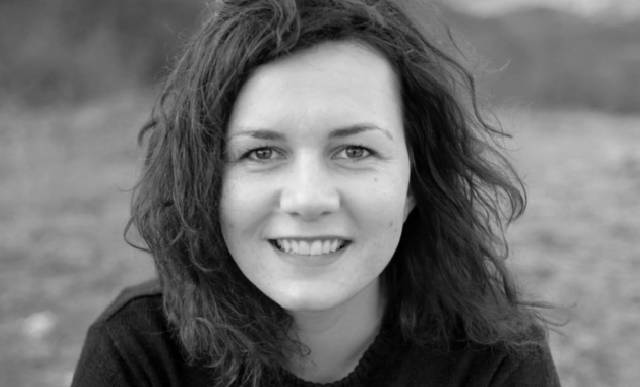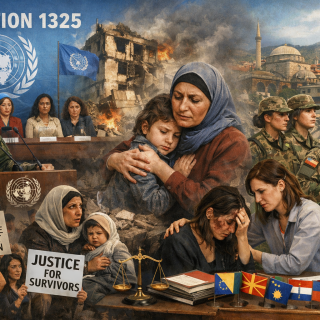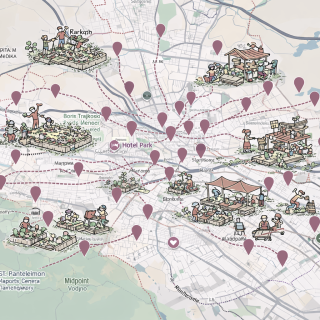At first glance, the term ”transitional justice” may suggest a specific form of justice that differs from typical judicial proceedings. In essence, it encompasses a series of activities implemented in countries in transition for the purpose of achieving justice, rule of law and reconciliation. This discipline is primarily focused on the need of societies to face their criminal past in order to lay the groundwork for a fairer future.
The legal doctrine provides that states are obliged to protect the rights of their citizens. If their rights are violated, the state must take all necesseary measures to establish the facts about crimes that were committed, prosecute and punish the perpetrators, provide reparations to victims and implement reforms that will prevent similar events from repeating themselves. The essence of transitional justice lies in putting victims at the very core of the process and turning court and out-of-court mechanisms into tools for facing the past.
However, in addition to legal and political reforms, it is important to identify and address war consequences on the mental health of citizens. This aspect of transitional processes is frequently neglected, although it plays a crucial role in building a resilient and healthy society.
Mental health in the context of war and post-conflict society
The war in Bosnia and Herzegovina has had a deep psychological impact on the whole population. Survivors of war crimes, such as rape and torture, but also displaced persons and families of missing persons, bear the burden of collective and individual trauma.[1] The most frequent consequences include:
- Post-traumatic stress disorder (PTSD): Continuous re-expiriencing traumatic events through nightmares, flashbacks and chronic stress. Studies have shown that war trauma leads to long-term consequences for the mind of children – the longer the conflict, the more serious the symptoms.[2]
- Depression: The feeling of helplessness and loss of meaning.
- Anxiety: The continuous feeling of fear and uncertainty.
- Collective trauma: A collective sense of loss and suffering within communities.[3]
Insufficient institutional support, stigma associated with mental health and limited access to specialised services make the recovery process more complicated.
Nexus between transitional justice and mental health
Transitional justice has the potential to directly impact the mental health of survivors and a society as a whole. Processes related to establishing the truth, punishing perpetrators and providing reparations may seem like a basis for the emotional and psychological recovery. Identifying the suffering of victims is not only a legal, but also a moral obligation of a society.
Failure to attain justice, on the other hand, may deepen the feeling of helplessness, anger and retraumtisation. The issue of missing persons is still one of the largest sources of permanent psychological pain for thousands of families in Bosnia and Herzegovina. The slow processing of war crimes and lack of institutional support make their recovery even more complicated.
Psychosocial work in practice
Psychosocial work constitutes a key part of recovery of survivors and rehabilitation of a post-conflict society. This approach encompasses several interventions based on the notion that war trauma is a multi-dimensional issue that requires long-term and multi-layered therapy:
- Individual therapy: Focusing on specific needs of survivors, including psychological support provided through therapy such as cognitive bihevioural therapy (CBT), trauma-focused cognitive bihevioural therapy (TF-CBT) and eye movement desensitisation and reprocessing (EMDR).
- Group therapy: Enabling survivors to share experiences, support each other and build a sense of unity. Self-help groups are particularly useful for women survivors of conflict-related sexual violence.
- Community-based work: Education and awareness raising of communities regarding the consequences of trauma. Organisation of workshops and public campaigns can help reduce stigma and build a supportive environment.
- Macro level: At society level, the integration of mental health programmes in the health protection system and judicial proceedings is crucial for long-term success.[4]
Recommendations for improvement
In order for transitional justice and mental health to be efficiently integrated in a post-conflict society, a series of specific measures are needed:
- Improving access to mental health services: Establishment of centres for psychological support specialised in trauma treatment.
- Training experts: Trainings about the specifics of work with traumatised persons for therapists, social workers and lawyers.
- Reducing stigma: Raising awareness of mental health importance through public campaigns and awareness raising programmes.
- Faster processing of crimes: A more efficient work of judicial authorities may contribute to a sense of justice and facilitate emotional recovery.
- Reparations: Material and symbolic support for victims must be a priority, including also financial assistance, health protection and educational programmes.
- Involving communities: Launching initiatives that will facilitate a dialogue, reconciliation and trust building among different groups.
Conclusion
Transitional justice and mental health are inextricably linked in post-conflict recovery processes. Although legal mechanisms play a key role in determining responsibility and providing reparations, a true recovery of a society also requires a comprehensive approach to mental health as well as integrating psychosocial interventions, education and systematic support that make it possible to lay the groundwork for reconciliation and a healthier society.
Several organisations and institutions in our country are focusing their operations on these issues:
- Medica Zenica: This organisation provides support to women and children survivors of conflict-related trauma, including also sexual violence. Their activities include psychosocial support, individual and group therapy, and legal aid.
- Mental health centres: Mental health centres are part of the public healthcare system throughout Bosnia and Herzegovina and provide psychosocial support and treatment to war survivors. These centres play a crucial role in making mental health services available in communities.
- TRIAL International BiH: This organistion provides legal aid to survivors of war crimes and advocates reparations. Together with psychologists it provides psychosocial support as part of the overall transitional justice process.
- Association Vive žene: This association applies a holistic approach to recovery by combining psychological support with legal counselling and comunity-based awareness raising of trauma. Their programmes include work with families of missing persons, returnees and victims of torture.
- Association Pravi požar: It provides support to youth, war veterans, women, families, victims of war and other categories of population in Bosnia and Herzegovina that were affected by violence in general or conflict-related violence. The association gathers war veterans from armed forces of all three warring factions. Its approach implies a constructive use of experience of war veterans through discussions between veterans and youth throughout the country in order to create a space for dialogue, understanding and reconciliation among the youth.
These organisations and institutions are only some of many entities that are actively engaged in transitional justice and mental health issues in Bosnia and Herzegovina. Many other NGOs, international institutions, local initiatives and individuals also contribute to this process. For example, different local organisations in communities throughout the country offer specific support programmes, wheras international organisations, such as UNDP and UNICEF, support projects focusing on trauma, reconciliation and strengthening of communities. Also, academic institutions and research centres are involved in the research and implementation of policies combining transitional justice and mental health.
All these efforts combined constitute an important part of the network support needed for a true recovery and reconciliation in a post-conflict society. Every organisation contributes in its own way, be it by providing direct assistance to survivors, community-based awareness raising, legal lobbying or development of policies that incorporate mental health and justice in the wider social structure.
Finally, it is high time to understand that seeing a psychiatrist or psychotherapist is nothing to be ashamed of, that healing ourselves and our pain is nothing to be ashamed of. It is time to understand that participating in peace activities does not constitute a betrayal of one’s nation, but rather an act of fighting for a better version of oneself and a better future. This does not concern some people, but rather us and our society.
Mirjana Trifković has been working on facing the past and peace building projects and programmes for more than ten years, focusing on peace education of youth and work with associations of victims of war in Bosnia and Herzegovina. She worked at the Court of Bosnia and Herzegovina as an expert associate at the War Crimes Chamber and she holds a degree in law from the Faculty of Law of the University of East Sarajevo. She is a peace building trainer and Gestalt psychotherapy education and trauma education trainer and advisor. At the moment, she is working as a consultant for international organisations in the field of transitional justice, facing the past and peace building in Bosnia and Herzegovina.
[1] http://www.mpr.gov.ba/aktuelnosti/propisi/konsultacije/strategija%20tp%20-%20bosanski%20jezik%20fin%20doc.pdf
[2] https://warchildhood.org/ba/uticaj-rata-na-mentalno-zdravlje-djece/
[3] https://www.rtvbn.com/355290/BiH-u-kandzama-PTSP-a–posledice
[4] http://www.mpr.gov.ba/aktuelnosti/propisi/konsultacije/strategija%20tp%20-%20bosanski%20jezik%20fin%20doc.pdf
https://fmoh.gov.ba/uploads/file_manager/c4e63cb69f9c18556bc321b0eca0e67b3cb0f333.pdf




